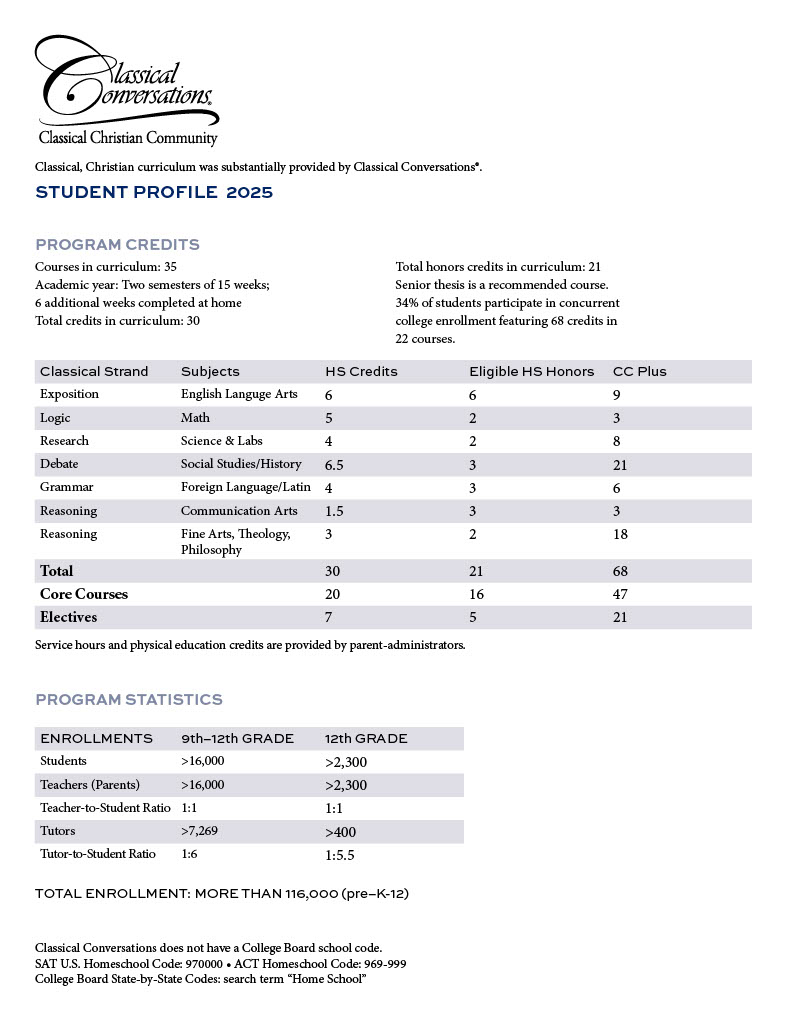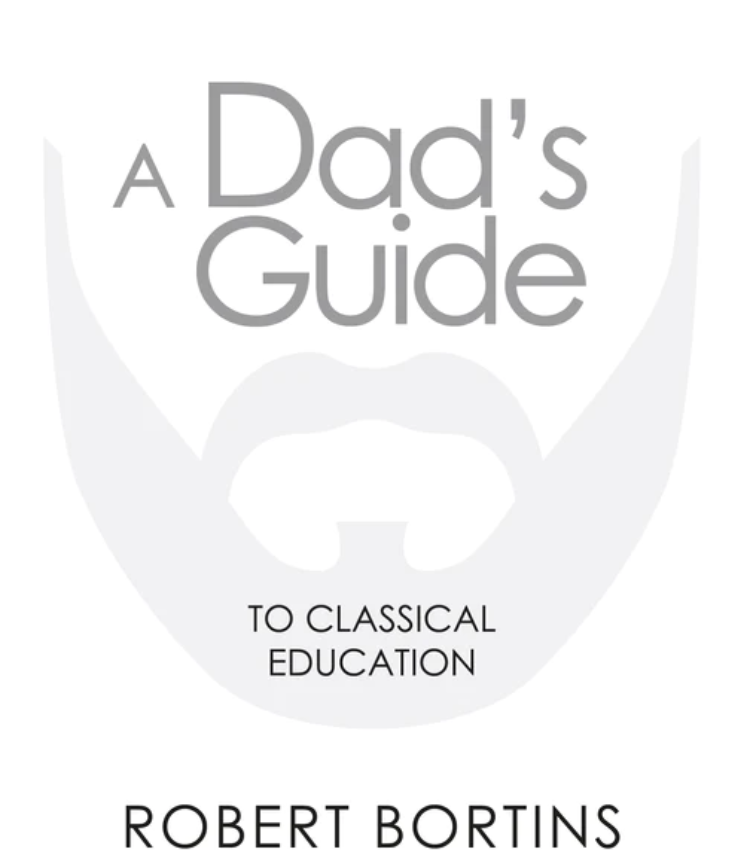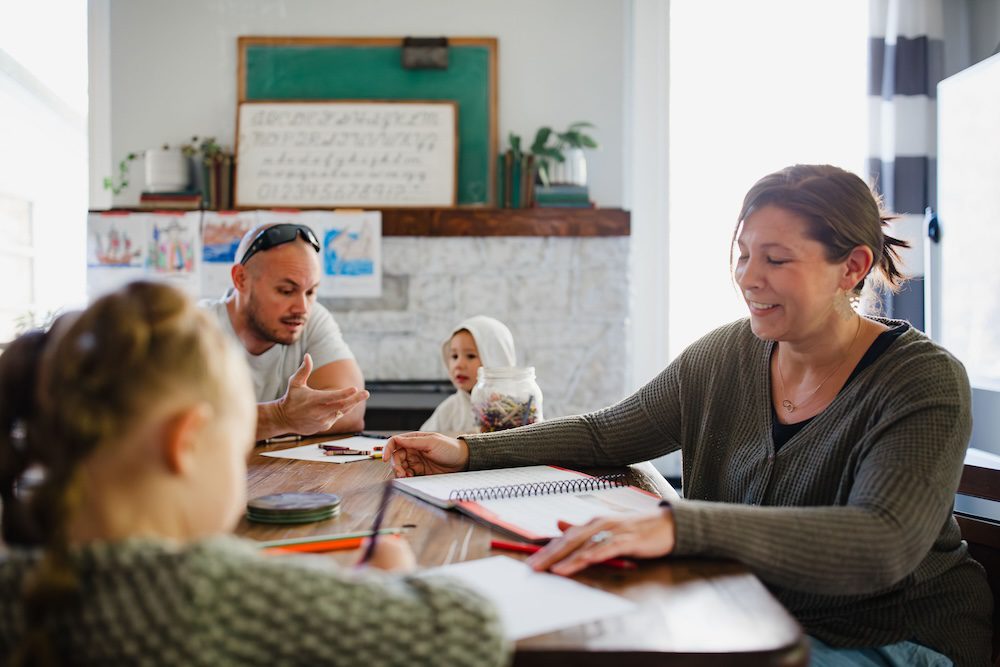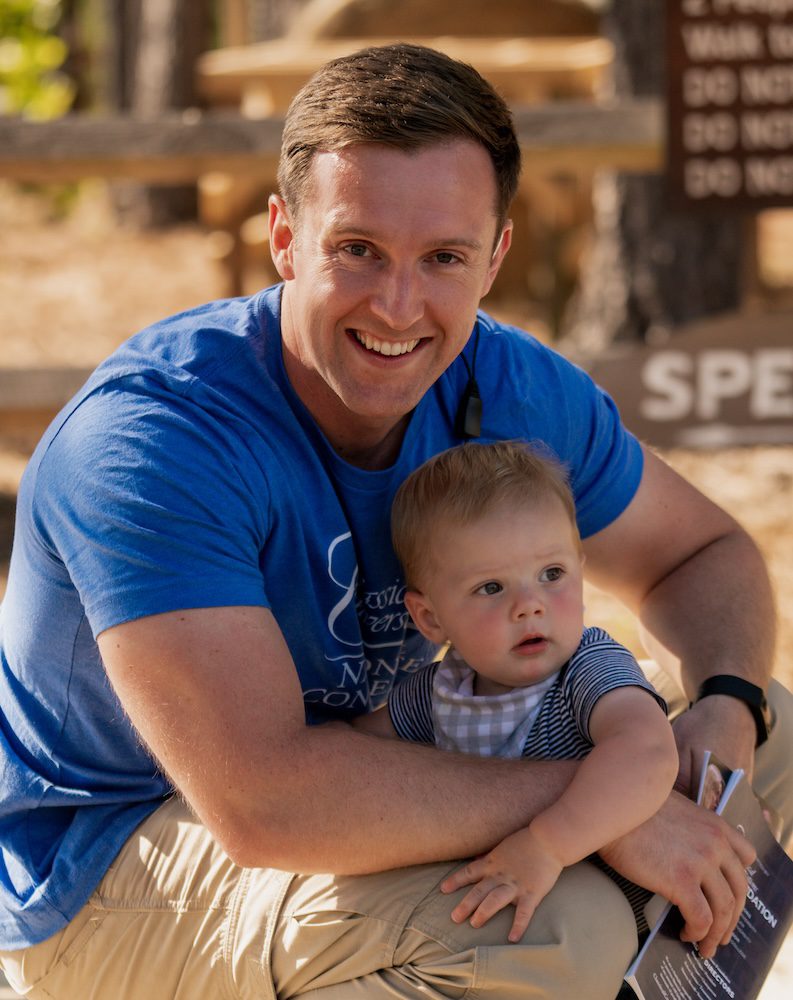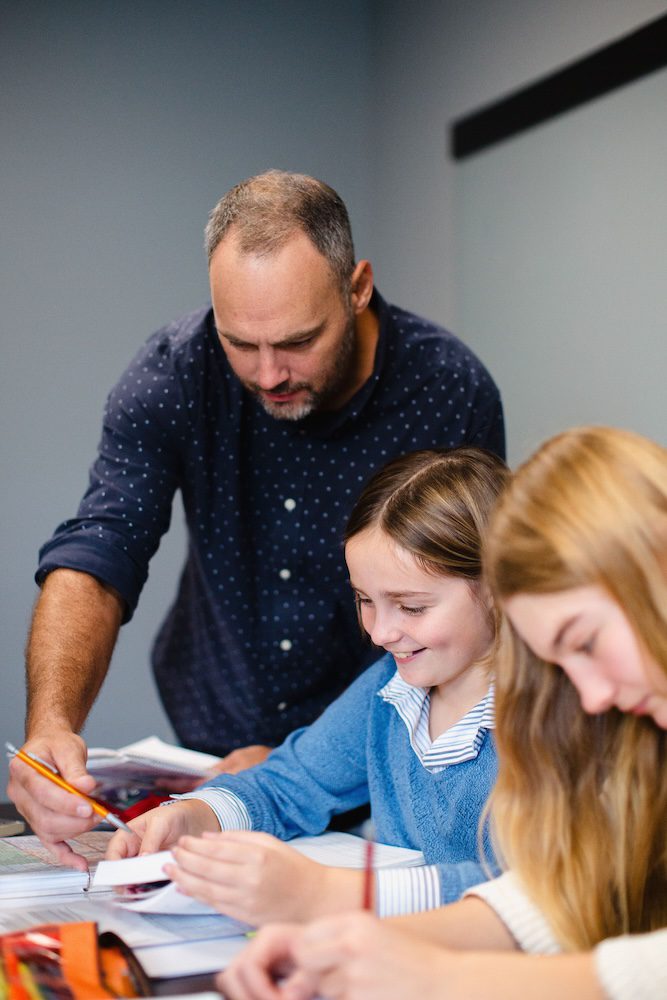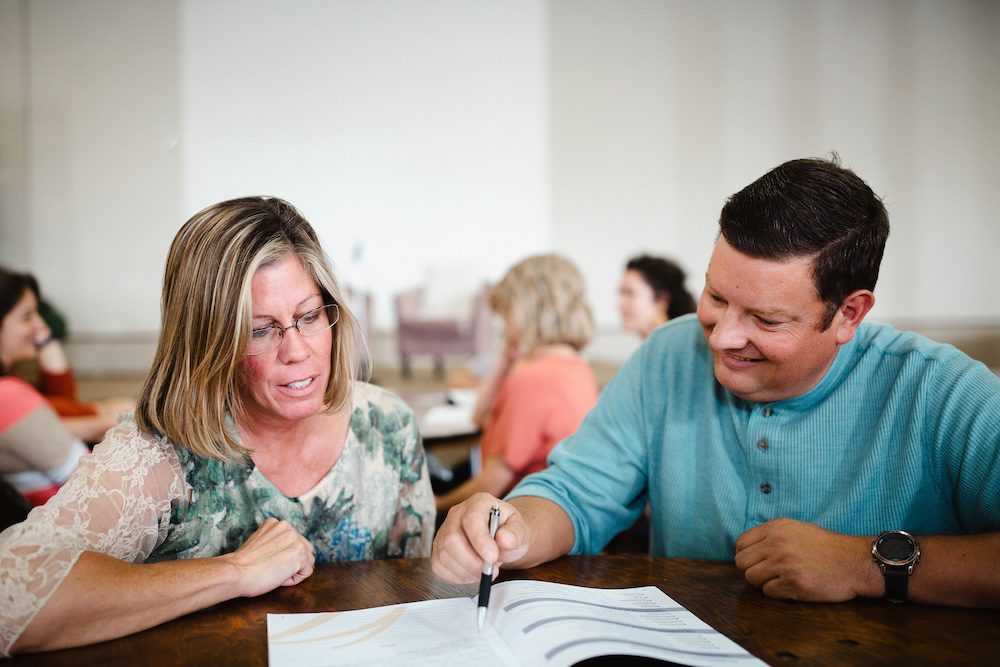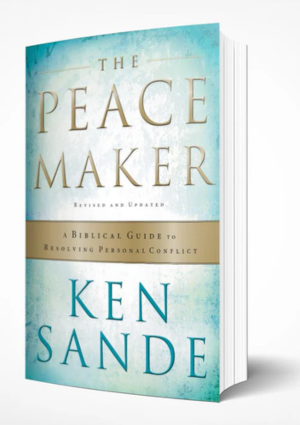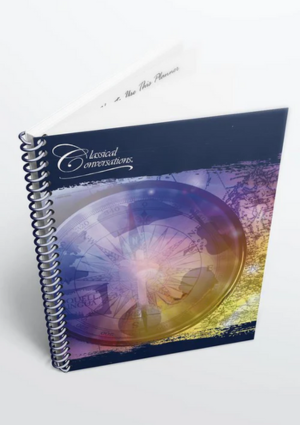Where Should We Begin?
My wife is interested in Classical Conversations. I’d like to learn more, but I don’t know where to start.
We’ve decided to homeschool with Classical Conversations, but I still have some questions.
Classical Conversations is the homeschool program known for connecting lives through learning.

The Conversation
“I think we should do CC,” she says. “They’ve got a homeschool curriculum that’s based on the classical trivium, and there’s a community near us.”
See-see? Trivium? You wonder if she’s been taking foreign language lessons on the side, but still, you’re intrigued.
“Okay, tell me more,” you say.
And here’s where the floodgates open. She’s excited, informed, and committed. And you trust her, you know she does her research, but the firehose of information she’s sharing is nearly impossible to keep up with. Community days. Cycles. Trivium, practicum, exordium. You’re pretty sure she made that last word up.
“Wait.” Time to go back to basics. “What’s See-see?”
She’s quick with an answer. “Classical Conversations. A classical Christian homeschool program. You know how we’ve been talking about how we want our children to have an education that’s truly centered around Jesus? Well, CC has a clear vision to know God and to make Him known. And they’ve got these homeschool groups called communities, so we wouldn’t have to do everything alone, and our kids could make friends.”
Well, that sounds solid. And, as your conversation unfolds, you understand why she’s so excited. In fact, you’re starting to catch the vision.

Looking Back
Classical Conversations is at the cutting edge of a timeless movement.
We’re recovering the ancient model of classical education and adapting it in our communities and homes today. We are turning our modern heads back toward the age-old wisdom of the trivium (Latin for “three roads”).
Contemporary society insists that there is no certain knowledge, no absolute truth. As Christians, we know the opposite. We believe that Truth is the person of Jesus, and we can know Him. We believe that God has revealed himself to us in His world as well as His word. We believe that the classical model, a historical educational framework with roots stretching back to ancient Rome, will help families to know God and to make Him known in the world.
Our History
Founded in 1997, Classical Conversations was developed by Leigh Bortins, who has the unique distinction of being both a rocket scientist and a homeschool mom! Now, her son and first student, Robert Bortins, serves as CEO. A family-owned business, Classical Conversations executes its mission to know God and to make Him known by curating a classical Christian curriculum and providing services and training parents to build strong and lasting homeschool communities in every state and across sixty countries. Our goal is to equip moms and dads with the skills and resources they need to homeschool with complete confidence.
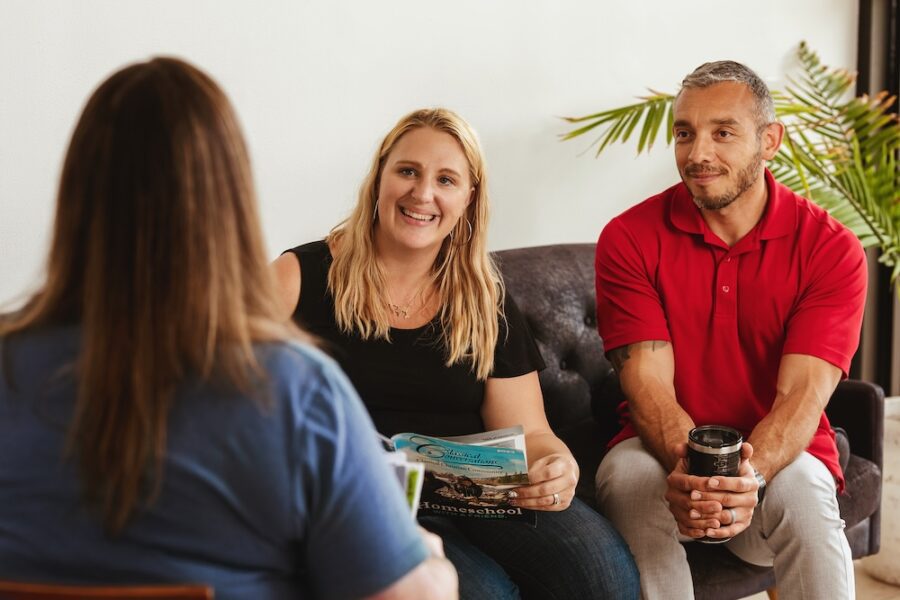
Finding the Way Forward
We believe God trusts you to teach your child. After all, the family is Christ’s natural classroom. That’s why Classical Conversations equips you with the blueprint to educate your child from pre-k through graduation to his or her fullest God-given potential.
Of course, God also made us to live with others. We need community. To quote the Good Book: “It is not good for man to be alone” (Genesis 2:18). Grounded in a partnership between parents, students, and Licensed Directors, our communities meet once a week. Furthermore, our programs provide the structure necessary to stay on track, and students and parents both get hands-on practice with classical skills of learning using our Christ-centered curriculum.
And, by the way, that also means you don’t need a classical education to be a classical educator. You’ll learn everything you need to know by doing—with some help from the community.
Classical Conversations members can expect
• weekly hands-on science and fine arts projects at the Foundations level,
• annual academic program training for our Licensed Directors and Tutors,
• free learning events for parents to practice the classical skills of learning,
• unified curriculum with classical literature and original source documents,
• weekly support from your local Director, network of CC families,
• and resources so you can homeschool for yourself but not by yourself.
Just like your family, each local CC community has its distinctives, but when you become a member of a licensed community, you’ll experience learning as a voyage—with you at the helm.
Building Your Family Legacy
You aren’t interested in a curriculum filled with important-sounding but impractical information. You want to raise a virtuous generation prepared to face the most important issues of their day and succeed as citizens of this world and, most importantly, as eternal beings. You want to maximize your influence. You’ve got this. And we’ve got you. We provide you a consistent road map and weekly accountability in a community of local homeschooling families, and you’re equipped with the skills and support to teach a Christ-centered worldview that’s rooted in the classical model. Whether you need help with English grammar or sincere encouragement to stay the course, when you’re part of Classical Conversations, we’ve got your back. Thanks to our decades of experience, we have the tools to help you provide a comprehensive education that creates bright and observant students who have a lifelong love of learning!
Our mission is to know God and to make Him known. Therefore, we aspire to develop both minds and souls.
“Alright, so we’ve decided to homeschool with CC.
What do I need to know?”
It’s great that you’ve taken the initiative to homeschool! As for CC, there are a few things you should know:
First, Classical Conversations is structured around a classical education model, focusing on the trivium (grammar, dialectic, and rhetoric). So, expect your kids to engage deeply with language, logic, and communication skills.
Second, we take a community-based approach, so your wife and kids will be part of a local CC community, attending weekly gatherings called “community days.” These are where they’ll participate in group activities, presentations, and discussions with other homeschooling families. Each local community is supported by a Licensed Director and trained Tutors to support you every step of the way.
Also, we place a strong emphasis on parental involvement, and our belief is that you are your child’s first and best teacher. So, this is an essential opportunity for you to be involved in your family’s homeschool experience. We believe education is the responsibility of the family—with support from fellow believers.
You’ll want to know that CC is mission driven. We are a classical Christian homeschooling company, and we are not shy about our intention “To know God and to make Him known.” We do this by curating curriculum, providing services, and training parents to build flourishing homeschool communities.
Last, CC provides a structured yet flexible curriculum, allowing families to tailor the learning experience to their children’s needs and interests.
For a comprehensive overview of Classical Conversations, you’ll want to browse our 2024 catalog.
“What does a typical homeschool week look like with CC? How about a typical day?”
That’s a helpful common-sense question. Let’s break it down by our three distinct programs: Foundations, Essentials, and Challenge.
Community Day: 1 morning per week.
At Home: Remaining days.
Homeschooling: Parents lead daily lessons using CC curriculum materials, reinforcing memory work, and exploring additional subjects as desired.
Field Trips and Supplemental Activities: Families may participate in field trips with other homeschooling families or as their own unit. There are plenty of opportunity to pursue sports, fine-arts, and play too!
The community day typically starts with a morning assembly where families gather for prayer, pledges, and announcements. Following this community gathering, students and parents will divide into smaller groups generally sorted by student age, to review memory work, learn new skills and content, and participate in hands-on activities for fine arts and science. Parents accompany their children and support trained Tutors who prepare for the community day’s content and activities.
Generally, there is a communal lunch time for CC families and recess and/or outdoor activities, weather and facility permitting.
Community Day: 1 afternoon per week.
At Home: Remaining days.
Independent Work: Students complete assignments in language arts, math, and literature -based writing lessons, practicing skills learned during community day.
Parent-led Activities: Parents lead discussions and review skills, providing guidance and support in challenging areas.
Our afternoon program focuses on Language Arts and math drills. Students delve deeper into English Grammar, literature-based writing, and math facts. Led by trained Tutors, each Essentials classroom includes parents with students, and you’ll review content, introduce upcoming material, and enjoy group games and activities. Students hone their presentation skills as they orally share papers they’ve written with instruction and help from parents and The Institute for Excellence in Writing History Based Writing Lessons to model how lessons and learning should happen at home.
Ultimately, Essentials exists to help equip the parents who take lessons learned at community home. There’s also an overlap with the Foundations program, as Essentials serves as a bridge to Challenge.
Community Day: 1 day per week.
At Home: Remaining days.
Independent Study: Students work on research projects, reading assignments, and writing essays.
Extracurricular Activities: Students may participate in extracurricular activities, clubs, or volunteer opportunities outside of CC.
Once a week students gather for “Seminar Day” to review work that’s been completed at home, engage in meaningful discussions, present their work, and participate in activities like debate, labs, and rhetorical events. Integrated seminars arranged for six hours total (not including lunch) allow for connections between science, math, philosophy, theology, history, literature, and economics, as well as advanced math and science coursework, including algebra, geometry, calculus, biology, chemistry, and physics.
Challenge communities rely on the three-way partnership of parents, students, and Tutors. Parents are encouraged to attend as program Directors facilitate groups of up to twelve students.
A typical week in each CC program involves a combination of community day activities, at-home lessons, and extracurricular pursuits, providing students with a well-rounded education tailored to their age and academic level. Each local community day is structured to meet the unique needs and developmental stages of students within the program in which they are enrolled, providing a comprehensive and classical education experience tailored to their age and academic level.
“How does CC help students prepare for college?”
Classical Conversations provides a solid foundation for college preparation in several ways:
Curriculum
CC offers a rigorous classical education curriculum that covers a wide range of subjects including language arts, math, science, history, Latin, and fine arts. This comprehensive curriculum helps students develop strong critical thinking, analytical, and problem-solving skills essential for college success.

Flexible Programs
CC’s curriculum developers anticipate that your student will increase in personal interest and independence. Our programs allow plenty of time for students to participate in extracurricular activities, clubs, and community service projects, allowing them to develop leadership skills, pursue their interests, and build a well-rounded college application.
Equipped to Lead, Ready to Rise
The final year of the Challenge program sharpens students’ understanding that consequences define leadership. In Challenge IV, students contemplate duty, honor, and leadership throughout history and into our own day, richly crowning their Challenge journey.
In this final year of homeschooling, students prepare for the next steps in college, trade, or career, which may also include earning concurrent college credit through the CC Plus program. Parents can see their child flourish, reaping the rewards of their investment in educating at home.

Writing and Rhetoric Skills
The Essentials and Challenge programs focus extensively on writing and rhetoric skills. Students learn to write persuasively, construct arguments, and present ideas effectively—skills that are invaluable in college-level writing assignments, research papers, and presentations.

Critical Thinking and Logic
Through Socratic discussions, logic courses, and debate practice, CC students develop strong critical thinking and reasoning skills. These skills are highly valued in college classrooms, where students are expected to engage deeply with complex ideas and defend their positions with evidence and logic.

Assessment
CC encourages meaningful assessment, both of oneself and the work of other students, always looking for opportunities to improve and recognizing success where it is found. Cultivation of this knowledge and skills help students perform well on these types of exams, which are often required for college admission.
Concurrent Enrollment Opportunity
While enrolled in the local CC Community Challenge program, your student can also earn college credit from an accredited university! Whether your student wants to get some upper level experience under their belt or has their eye on earning a degree, our concurrent enrollment program through CC Plus makes this possible.
CC equips students with the academic knowledge, skills, and experiences that they need to succeed in college and beyond. By providing a rigorous classical education, imparting critical thinking and communication skills, and offering opportunities for concurrent enrollment and extracurricular involvement, CC prepares students to thrive in the challenges of higher education.
“How can I support my wife?”
We have lots of suggestions, and we’re confident you’ll find the right combination of ways to support and equip your wife to homeschool!
Encourage Her
Homeschooling can be challenging, so your encouragement and support mean a lot. Let your wife know that you appreciate her dedication and the effort she puts into homeschooling your children.
Know the Content
Be familiar with the curriculum guides. Read several of the assigned books as a family or as a couple.
Share Responsibilities
Offer to share homeschooling responsibilities by helping with lesson planning, teaching certain subjects, or supervising activities. This can provide your wife with much-needed breaks and support.
Attend Community Days
If possible, attend CC community days with your family even if it’s just to visit. Your presence not only provides moral support but also allows you to engage with other homeschooling families and build community connections.
Assist with Planning
Help your wife with a family schedule, a plan for days away, and getting a vacation on the calendar. Oversee a chore chart, help with a system for keeping track of library books, and coordinate pet care.
Make Time for Self-Care
Homeschooling can be demanding, so make sure your wife has time for self-care and relaxation. Offer to take over childcare duties or household chores so she can have some time to recharge. Allow your wife time for fellowship and Titus 2 mentorship, or time for Bible study and contemplation of God’s Word.
Emotional Support
Homeschooling can come with its own set of challenges, so be there to provide emotional support and encouragement. Listen to your wife’s concerns, offer advice when needed, and celebrate her successes as a homeschooling parent.
Advanced Subjects
Help your wife analyze her own strengths and weaknesses and look for opportunities to either teach some subjects or find others in your church or community who can supplement the teaching at home.
Student Independence
As they mature, students are encouraged to take more responsibility for their learning. Support your wife in encouraging your children’s independence by providing a conducive learning environment, resources, and guidance when necessary.
CC Practicum
Participate with your wife in Practicum. This is another way to demonstrate your commitment to your children’s education, and continue to grow in your own understanding and ability to teach your children, as well as make connections with other families from your CC community.
“How much does CC cost?”
Click the button below to see our 2024–25 pricing structure.
Parents are responsible for purchasing books required in our program guides, supplemental materials for at home use, and any desired supplies for your private home school.
Other Frequently Asked Questions
Have any other questions about Classical Conversations?
This FAQ covers a range of topics, from our integrated Bible curriculum to college preparation. We explain our fee structure, discuss transitions between program levels, and outline how CC prepares students for various post-graduation paths. We aim to clarify our approach and help you make informed decisions about your child’s education.
The Bible is integrated throughout each strand! We believe that a Christ-centered worldview should permeate all areas of learning rather than stand alone as a separate subject.
In the classical, Christian model of education, students build a strong foundation in the grammar of each subject in the early years. Reading of the Old Testament and New Testament is assigned explicitly during the thirty weeks for the final year of the program, Challenge IV, as the capstone of their knowledge. The idea is that theology can be most deeply understood and appreciated with matured skills of learning.
So while the Bible is not a separate subject in the younger years, it is woven throughout the curriculum and then given special emphasis at the end of the journey.
Read more: A Christian Curriculum
Your program fees cover a quality curriculum, a supportive community, and trained Tutors and Licensed Directors. These costs are a worthwhile investment in your child’s education, fostering a Christ-centered worldview and equipping them with the skills to succeed along any path they choose.
There are so many things that students memorize in Foundation and Essentials that don’t make sense at the time. Later, though, in Latin class in Challenge, we are able to puzzle through complex sentences because we know how to label each word in the sentence by its job.
One of the genius features of CC is the smooth transition from Foundations to Essentials to Challenge. Most if not all students have what it takes to move to the next program at the typical time. Of course, families can make adjustments, but with 25 years of experience with hundreds of thousands of families, the timing of the move is trustworthy, even if it is not obvious for your family in the moment.
Read more: Assessment Options
All schools, private, public, or homeschool set their own scope and sequence. Any time a family moves from one educational setting to another, they will likely be ahead in some areas and need to catch up in other areas in order to meet the standards of that new educational setting. If you decide to return to a government or private brick and mortar school, here are some considerations.
Academic Standards: Classical Conversations often exceeds the academic standards set by many public and private schools. The depth of content and focus on classical languages, such as Latin, can give students a strong foundation in linguistic and analytical skills.
Record Keeping: Maintain detailed records of your children’s coursework, grades, and any standardized test scores while using Classical Conversations. This documentation will be useful when transitioning back to a traditional school setting.
Classical Conversations is designed to provide a solid educational foundation. On our weekly community day, we don’t give tests and quizzes because we want to maximize their opportunities for experiments, speeches, and discussions. However, here are some additional tips to ensure your children are academically on track:
Regular Assessments: At home, consider periodically assessing their progress through quizzes, tests, and standardized exams.
Scale and Tailor: Use additional resources and materials to reinforce learning in areas where you feel additional support is needed.
Flexibility: Be flexible and responsive to your children’s learning needs, adjusting the pace and focus of the curriculum as needed.
Children educated through the Classical Conversations curriculum are well-prepared academically. However, ensuring a smooth transition back to a traditional school setting will require careful planning, regular assessment, and open communication with the new school.
Typically, students enrolled in Classical Conversations and other homeschool programs receive a homeschool diploma. This diploma is issued by the parents or the homeschool umbrella organization, not by Classical Conversations itself, as we are not a school. The parents, as the primary educators, are responsible for meeting their state’s requirements for high school graduation and for issuing the diploma.
Also, parents are responsible for maintaining accurate records of their child’s academic achievements. This includes logging course names, grades, and any standardized test scores.
It’s important to check the specific requirements for homeschool diplomas and transcripts in your state, as these can vary. Some states have specific regulations regarding what is needed for a homeschool student to graduate and receive a diploma.
In summary, while Classical Conversations provides a robust curriculum and support system, the responsibility for issuing diplomas and creating transcripts lies with the parents. The diplomas and transcripts are considered legitimate and “actual” for purposes of college admissions and other post-secondary opportunities, provided they are well-documented and meet state requirements.
If you’d like a great book on the why and how of transcripts, check out Transcripts Made Easy in the Classical Conversations bookstore. We also recommend the Academic Records Transcript Service.
College admissions officers recognize the quality of homeschooling. No matter what your college dream school looks like—Ivy League, top-ranked public university, or prestigious military academy—you’ll be happy to know that homeschoolers are increasingly welcomed by colleges across the board. Just check out MIT, Princeton, or the United States Naval Academy: they have pages dedicated to encouraging homeschoolers to apply and offering tips on how to maximize their odds of acceptance.
Read more: Can Homeschoolers Go to College?
Every student is different and not every graduate wants to pursue college as their next step. Classical Conversations students often move into trade schools, missions or gap year programs. Because classical education emphasizes how to learn, not what to learn, these students are well prepared for success.
CC’s community-based learning rooted in dialogue mirrors the style used in many university courses. Classical Conversations also develops strong analytic, writing, and public speaking skills—all of which are essential in college. And the study habits and work ethic developed in CC serve students well.
Read more: Skills College Students Need
Yes, many CC graduates have received merit-based scholarships at the colleges they’ve attended, and many schools now even offer homeschool scholarships! Additionally, CC partners with many colleges who offer exclusive scholarships only for Classical Conversations students.
Read more: How to Go to College for Free
Latin is key to a classical education, as it supports language mastery, improves vocabulary and grammar in English and other languages, and builds a foundation for learning Romance languages. It also opens up classical literature and history.
Also, please note that colleges will accept Latin as a foreign language for the purpose of admissions.
Read more: Reasons to Study Latin
CC’s approach to science is based on a classical model that emphasizes mastering the fundamentals before diving more deeply into each discipline. Similar to how we build strong reading and writing skills before leaping into complex literature, the program emphasizes foundational concepts in the early years. The goal is to cultivate scientific curiosity and skills that will serve them in future studies, skills such as observation, analytical thinking, and the scientific method.
Later, during the Challenge years, students can leverage these strong fundamentals for a deeper exploration of scientific disciplines, including biology, chemistry, and physics. This approach better fosters a lifelong love of learning and equips students to tackle complex scientific concepts with confidence.


